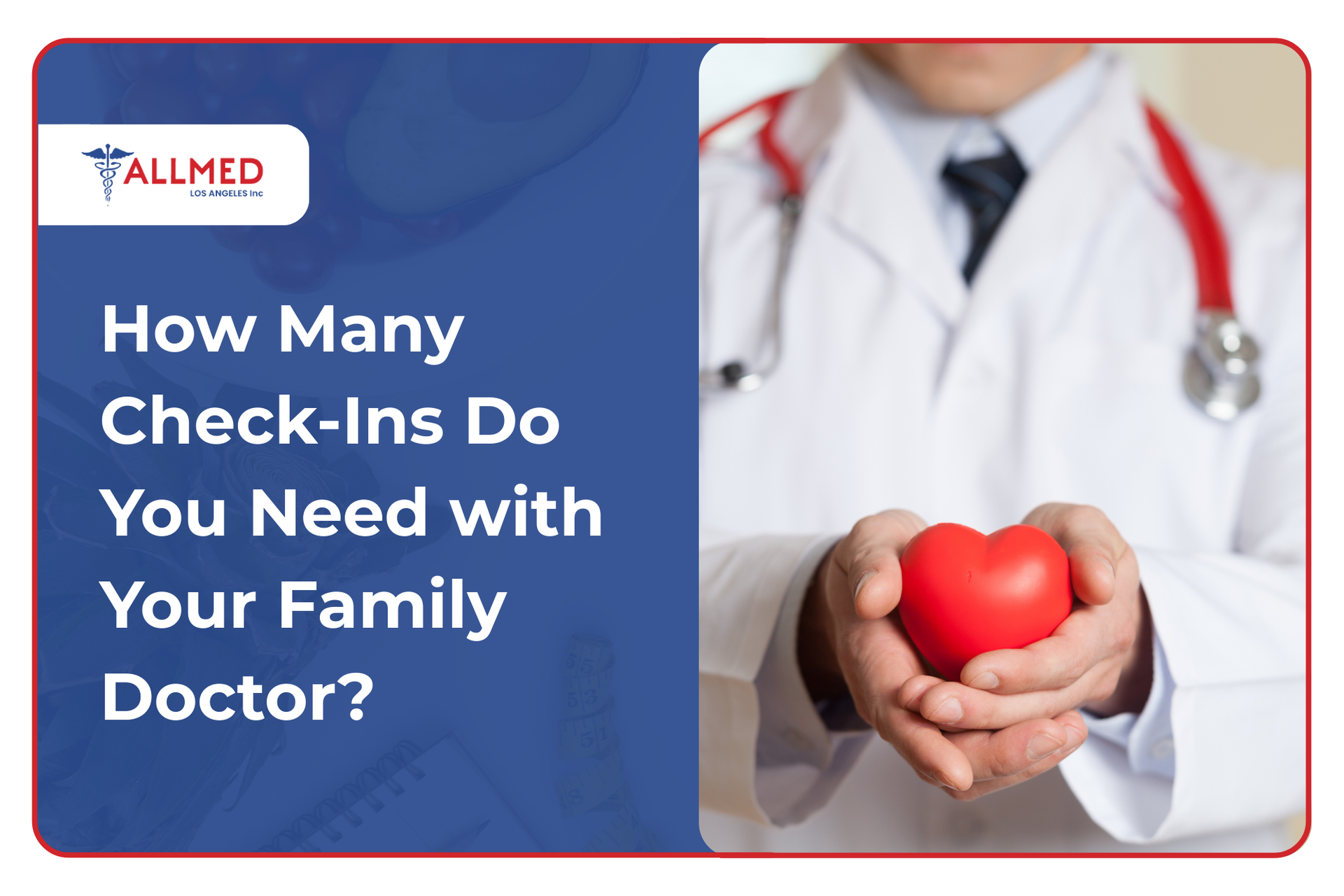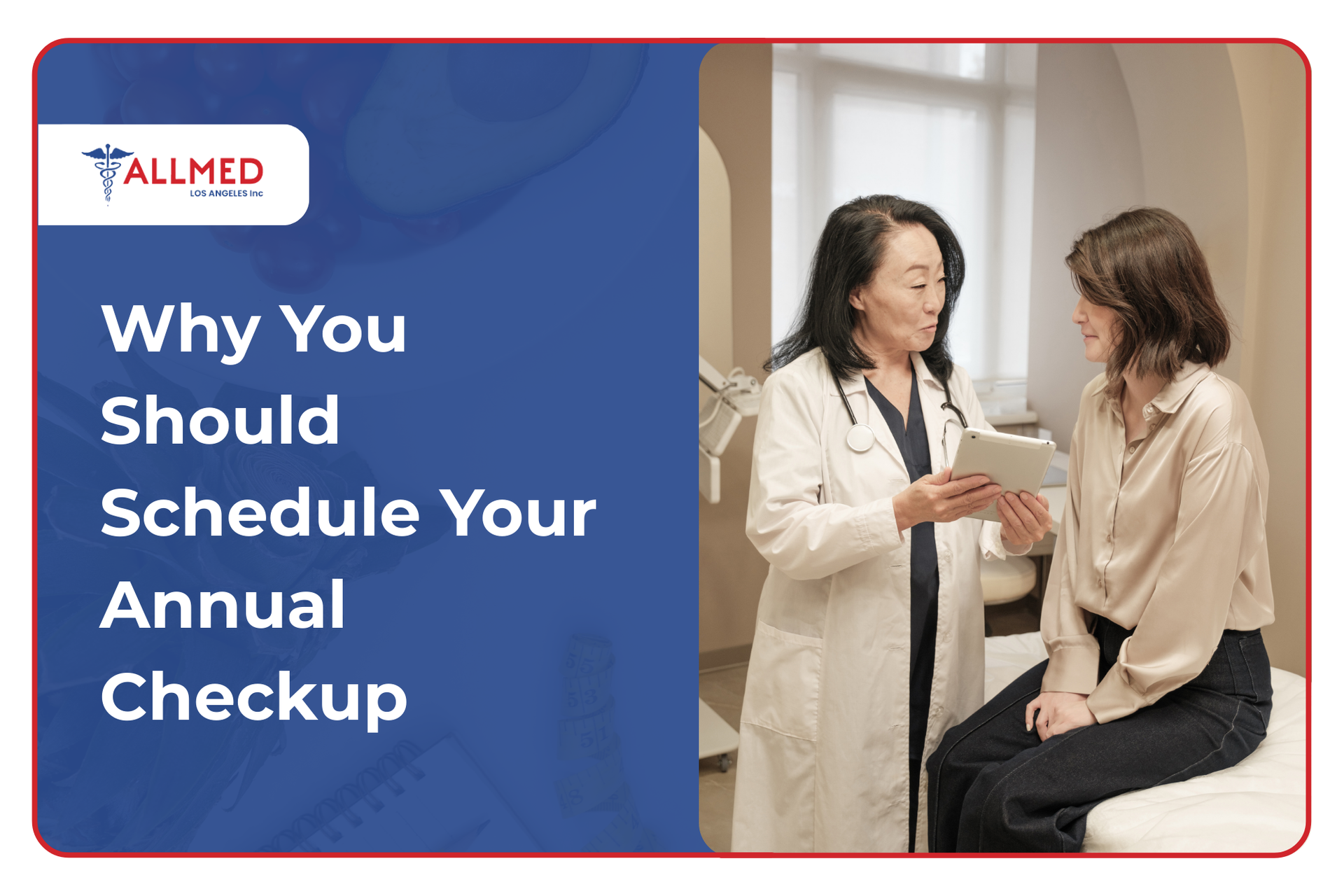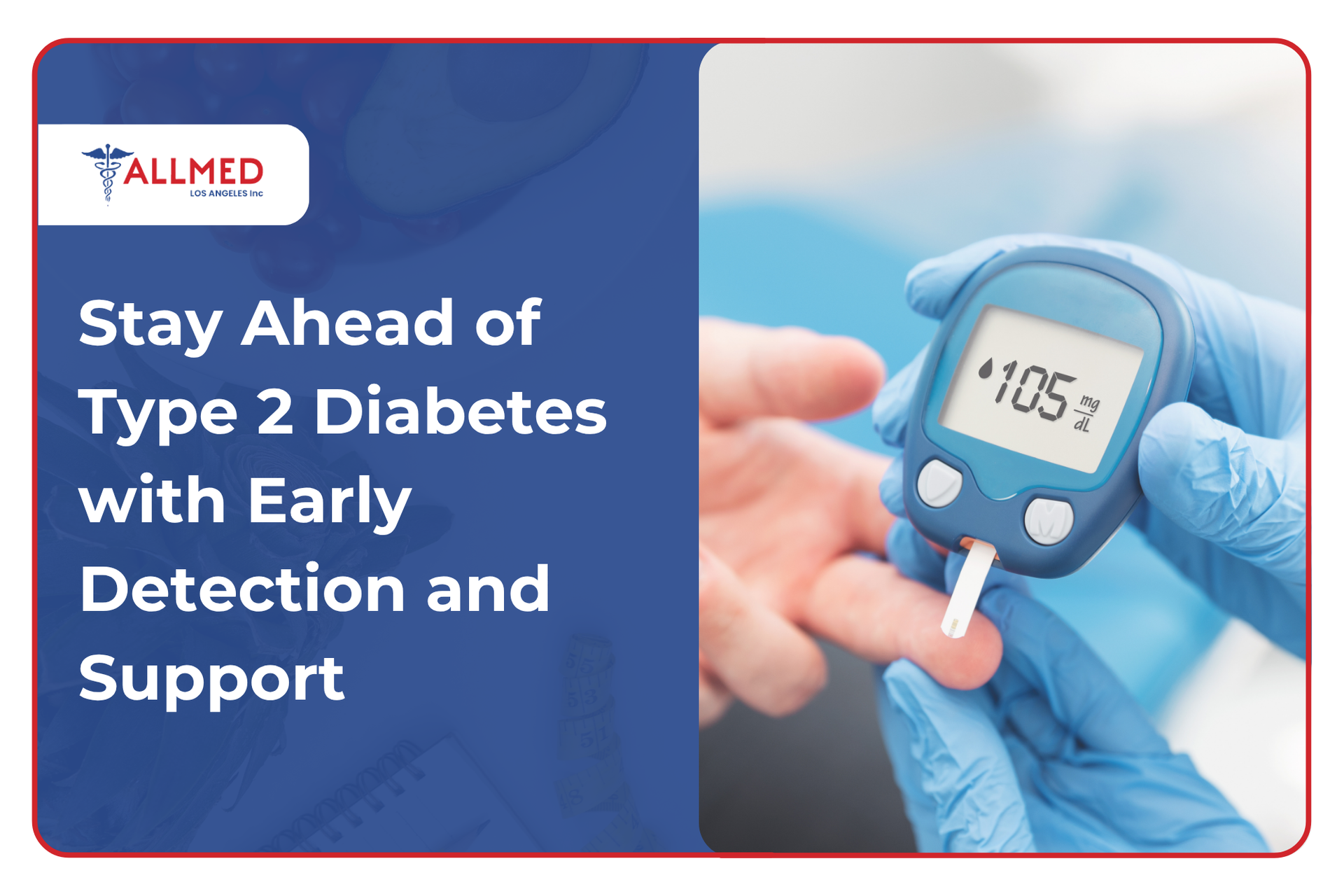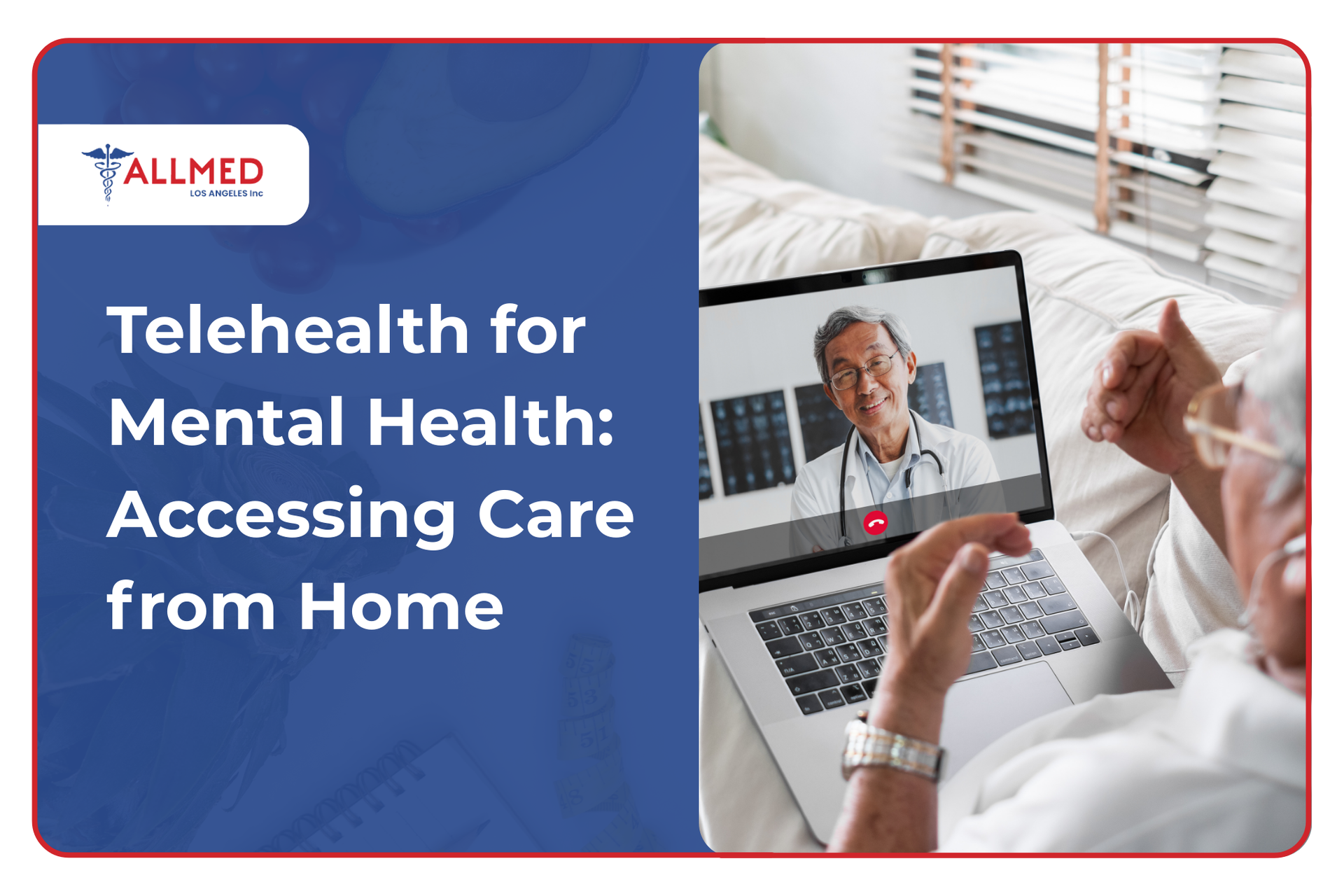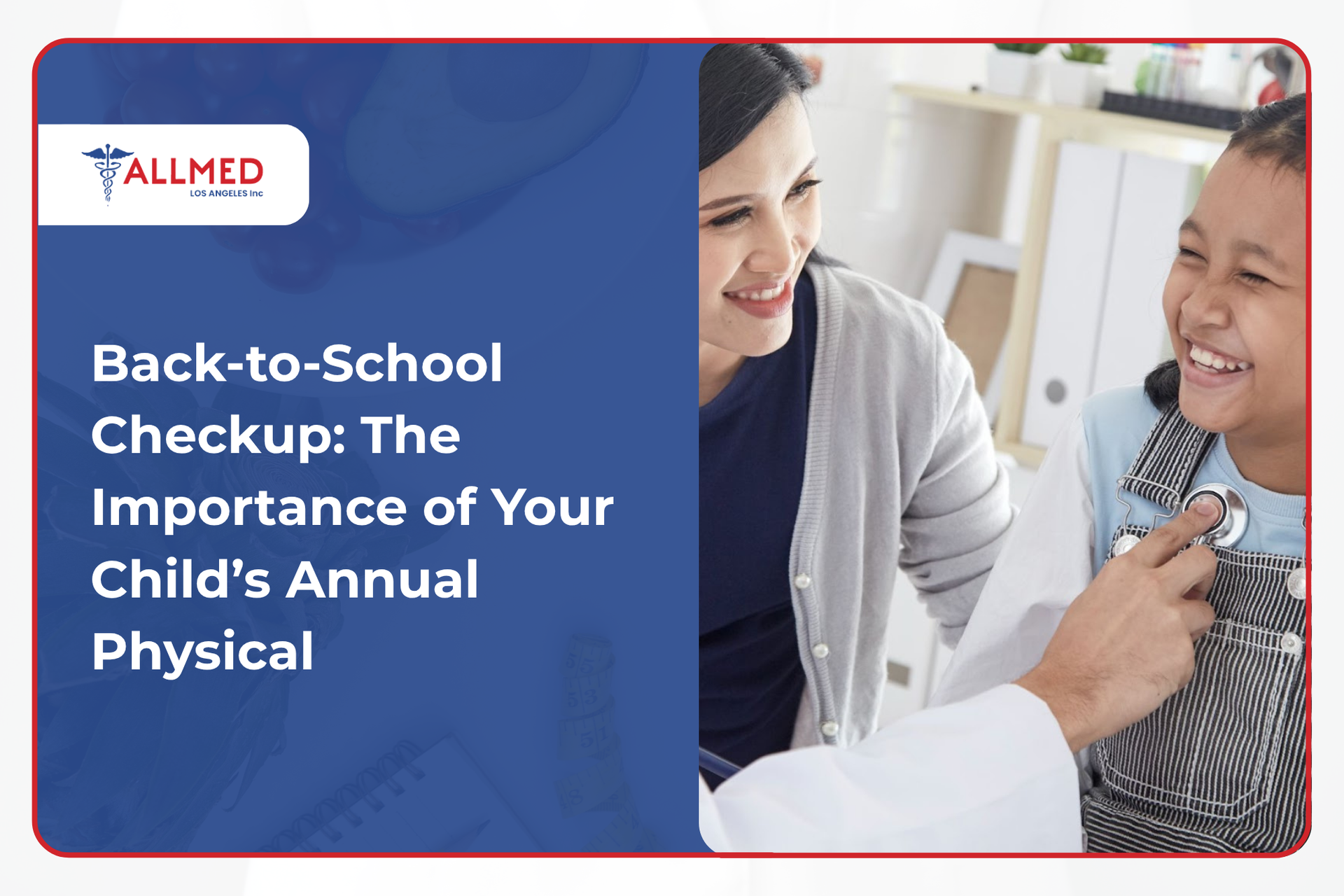When was the last time you visited your family doctor? For many of us, it’s only when we’re feeling unwell or when something feels off. That’s understandable, but we don’t have to wait for our health to take a turn for the worse.
Annual visits can help prevent problems before they even start, keep existing conditions in check, and give you peace of mind knowing you’re on the right track. Plus, it saves you time, stress, and money by avoiding more serious (and costly!) treatments down the road.
At Allmed LA, we believe in caring for your health year-round. We’ve had the privilege of watching how
consistent preventive care visits truly transform lives in our community. That’s why our team is here to help you stay on top of your health, manage ongoing conditions, and provide personalized guidance for living your healthiest, happiest life.
Prevention Is the Best Medicine
So, how often should you visit your doctor? Let’s explore what the experts recommend and create a healthcare schedule that works for you.
The General Rule of Thumb
For most healthy adults with no ongoing medical conditions, the golden rule is simple:
book your annual wellness exam or check-up at least once a year. Think of it as your yearly health reset, a chance to make sure everything’s working as it should and to catch anything early.
A typical yearly visit includes:
- Vital signs check – blood pressure, heart rate, temperature, weight, and more
- Lab work – routine blood tests to check cholesterol, blood sugar, and other key markers
- Health history update – any changes in your lifestyle, medical history, or symptoms
- Preventive screenings – age-appropriate tests, from cancer screenings to vision and hearing checks.
This way, your medical records are up-to-date, and this helps doctors track and spot early signs of potential health problems before they become bigger (and harder to treat).
Age-Specific Recommendations
That yearly check-up is a great starting point, but your ideal preventive care visit schedule changes as you move through different stages of life. Here’s what
experts recommend at each stage of life:
No matter your age, these routine check-ups set you up for a healthier future. Your primary care doctor will always tailor recommendations to your personal health history, lifestyle, and goals.
What Happens During a Family Doctor Visit
You’ve scheduled your appointment, now what? If you’re feeling a bit nervous about what to expect, that’s completely normal! Let’s pull back the curtain on what happens on a typical family doctor visit:
- Physical Examination & Vital Signs Check
Your doctor will check your blood pressure, heart rate, temperature, weight, and height to give you an instant snapshot of your overall health.
- Health & Lifestyle Discussion
Expect questions about your eating habits, exercise, sleep, stress, and mental well-being. This is also the perfect time to bring up any symptoms, concerns, or changes you’ve noticed.
- Vaccine & Medication Updates
Your doctor will check your current prescriptions and recommend vaccines you might need, such as flu shots, boosters for tetanus, or other vaccines for preventable illnesses.
- Lab Test & Imaging (If Needed)
Depending on your age, risk factors, or any symptoms you’ve mentioned, your doctor may order blood tests, X-rays, or other screenings for early disease detection and to get a clearer picture of your health.
This is paragraph text. Click it or hit the Manage Text button to change the font, color, size, format, and more. To set up site-wide paragraph and title styles, go to Site Theme.
Benefits of Regular Visits Beyond Illness
It’s important to remember that regular visits aren’t just for when you’re feeling unwell. In fact, some of the biggest benefits happen before you even have symptoms.
- A Strong, Ongoing Relationship with Your Doctor
Seeing the same doctor regularly means they truly get to know you, your health history, habits, and personal preferences. This is what’s known as
continuity of care. It makes it easier for them to spot when something’s not quite right.
- Tracking Your Health Over Time
Annual check-ups create a health timeline. Your doctor can compare past and present results, spotting patterns that might signal a problem before it starts.
- Early Action Before Problems Grow
Many health issues are easier (and cheaper) to treat when caught early. Regular visits give your doctor the chance to step in before things get worse.
- Better Management of Chronic Conditions
If you have conditions like diabetes, asthma, or high blood pressure, regular monitoring helps keep them under control and lowers your risk of serious complications.
Signs You Should See Your Doctor Sooner Than Planned
Even with regular check-ups, some situations can’t wait for your next scheduled visit. Knowing the warning signs can help you get care before a problem becomes serious.
Sudden, Unexplained Changes in Weight
Rapid changes in weight without a change in diet or exercise could be a sign of thyroid issues, heart problems, diabetes, or other medical concerns.
Persistent Pain, Fever, or Fatigue
Ongoing discomfort, a fever that doesn’t go away, or extreme tiredness may point to an infection or another underlying condition that needs attention.
Changes in Bowel or Bladder Habits
New constipation, diarrhea, blood in your stool, or difficulty urinating should be checked promptly.
Worsening of a Chronic Condition
If you have diabetes, asthma, high blood pressure, or another long-term illness, contact your doctor if your symptoms change or get worse.
Keep this as a general rule: If something feels off, don’t wait. It’s always better to get checked and find it’s nothing serious than to ignore a symptom that needs treatment.
Achieve Wellness for the Long Run with Allmed LA
We believe healthcare should be personal, proactive, and always within reach. At
Allmed LA, we make this possible. Your health is your most valuable asset, and we are always committed to protecting you and guiding you every step of the way with:
- Personalized recommendations, screenings, and follow-ups based on your age, lifestyle, and unique health needs.
- Detailed health records so we can track your progress, spot trends, and make informed decisions together.
- Convenient appointment times, friendly reminders, and a team that’s always ready to answer your questions.
When you choose Allmed LA, you’re choosing a healthcare partner who’s invested in your well-being for the long haul. So, don’t wait for “something to be wrong” to give us a call. Schedule your next visit, take charge of your health, and give yourself the gift of peace of mind.
Your Future Self Will Thank You
Frequently Asked Questions
Is it really necessary to see my doctor if I feel perfectly fine?
Yes! Regular check-ups can catch potential health problems early, often before symptoms appear. Prevention is almost always easier (and less costly) than treatment.
Can I skip my annual visit if I’m young and healthy?
It’s still best to check in once a year. Even healthy people benefit from tracking changes over time, getting updated vaccines, and receiving lifestyle guidance.
How often should I see my doctor if I have a chronic condition?
It depends on the condition and its stability, but many people with chronic illnesses visit every 3–6 months for monitoring and medication adjustments.
What if I can’t afford frequent doctor visits?
Talk to your healthcare provider about your situation. Many clinics, including Allmed LA, offer flexible scheduling, payment plans, or community resources to make preventive care more accessible.






